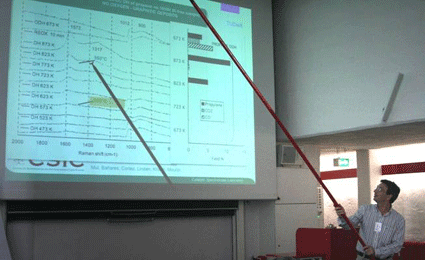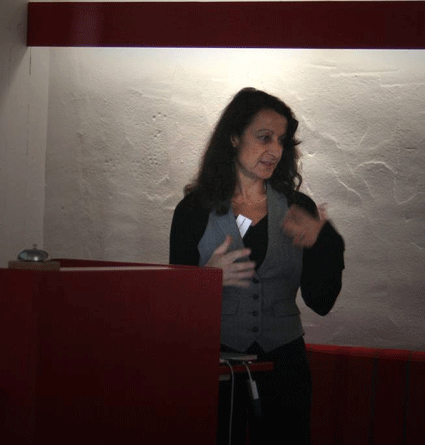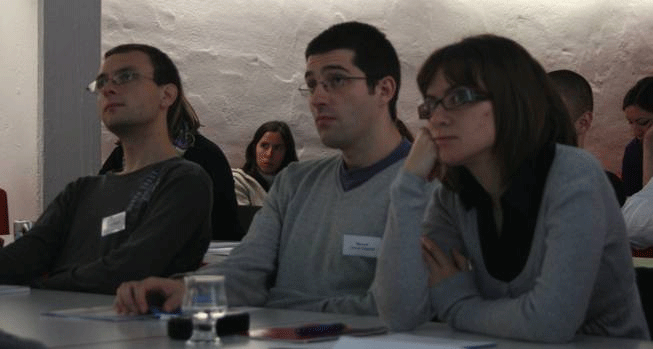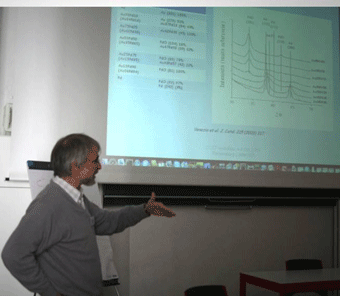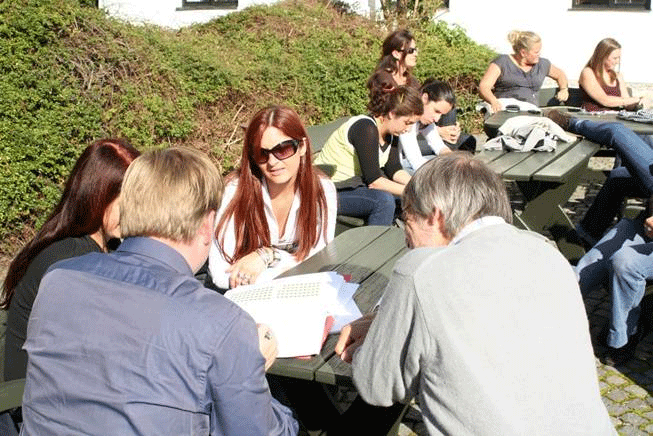Electrocatalysis at the Nanoscale: Theory and Modeling
Oct. 4 till Oct. 8, 2009, Reisensburg Castle near Ulm, Germany
During the last decades there has been tremendous progress in theoretical surface
science. Due to the great improvement of computing power and the development
of efficient algorithms it has become possible to understand surface structures and
processes in terms of electronic interactions. Electrochemistry has much in common
with surface science, but is complicated by the presence of the solvent, and by the
electron exchange between electrode and electrolyte that is a part of every electro-chemical reaction. Therefore, progress in theoretical chemistry has been slower, but
in the last few years it has been catching up fast. Techniques like density functional
theory (DFT), Monte Carlo, and molecular dynamics simulations, both classical and
quantum, are increasingly being applied to electrochemical systems, principally reactions of interest to catalysis. Within this COST action group, a general theory for
the catalysis of electrochemical electron transfer has been developed and successfully
applied to hydrogen evolution and oxidation both at
at and at nanostructured surfaces.We expect, that within a few years theory and modeling will play a similar role
in electrochemistry like it does today in surface science, where the best publications
usually involve some theory.
This workshop provided an expert introduction into the methods and models
of modern theories of electrocatalysis and its relation to heterogeneous catalysis. A
panel of twenty experts presented lectures on:
- Electron transfer theories: from Marcus theory to theories of electrocatalysis
- Simulation methods: Monte Carlo and Molecular dynamics, both classical and
quantum versions
- Quantum chemical methods
- Relation between electrocatalysis and heterogeneous catalysis
The informal response we received from the students and colleagues indicates
that this was a very good meeting. Indeed, it was felt that this kind of training
school was one of the big assets of the COST program.
Download here the final programme
